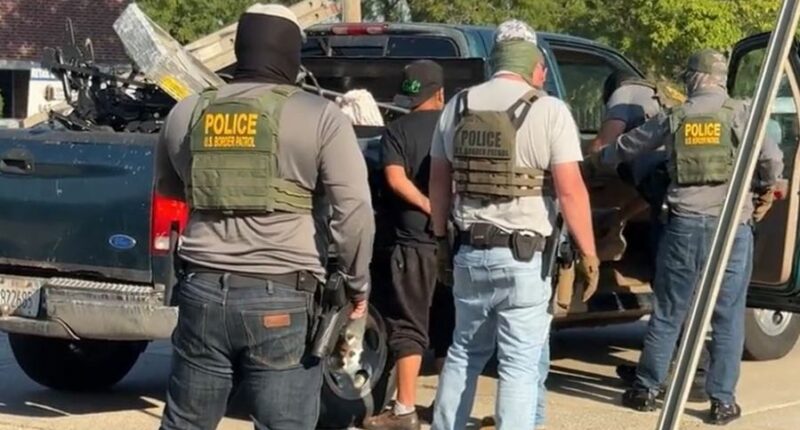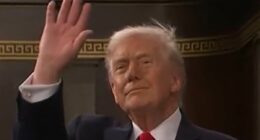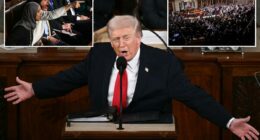Share this @internewscast.com

A federal judge has partially restricted the deployment of National Guard troops in Illinois, ruling that President Donald Trump did not fulfill the necessary criteria to federalize troops in Chicago.
The temporary restraining order issued by U.S. District Judge April Perry will remain in force for two weeks, until Oct. 23. Perry noted that there was “no credible evidence” of a rebellion and that sending troops might “only add fuel to the fire.”
This ruling occurs against the backdrop of ongoing protests at a federal immigration processing facility located in Broadview, Illinois. In her decision, Perry highlighted four events that question the Department of Homeland Security’s version of occurrences in Broadview, where authorities report the protests have been small and largely peaceful, unlike in previous weeks.
Nevertheless, officials indicated that 500 National Guardsmen have already been deployed for a 60-day period to safeguard federal officers and facilities, including the site at Broadview. The fate of these troops, who are based at a nearby Army Reserve installation, remains uncertain.
“They are welcome to stay at our hotels if they cover the hotel fees. They can dine at our restaurants like any other American citizen,” said Illinois Attorney General Kwame Raoul. “Our decision is made on their behalf too, ensuring they are not used against the very citizens they volunteered to protect.”
Raoul said the state of Illinois was not in the business of armed removal of the National Guard.
The judge is set to release her comprehensive written opinion on Friday, and the Justice Department has already expressed intentions to appeal the decision. Illinois authorities stated they seek to affirm that the order applies to any state’s National Guard, aiming to avoid a situation similar to Portland, Oregon, where troops from California were dispatched.
A three-judge panel in Portland heard arguments Thursday but did not set a timeline for a decision. Two of the judges, appointed by Trump, questioned whether the evidence was sufficient to justify federalizing the National Guard, noting that Trump relied on June reports to support actions taken in September.
The two appeared inclined to lift the current temporary restraining order blocking troop deployments to Oregon. Legal analysts told a decision could come as early as this weekend, with both cases likely to have a defining impact on how far a president can go in using the National Guard on U.S. soil.










